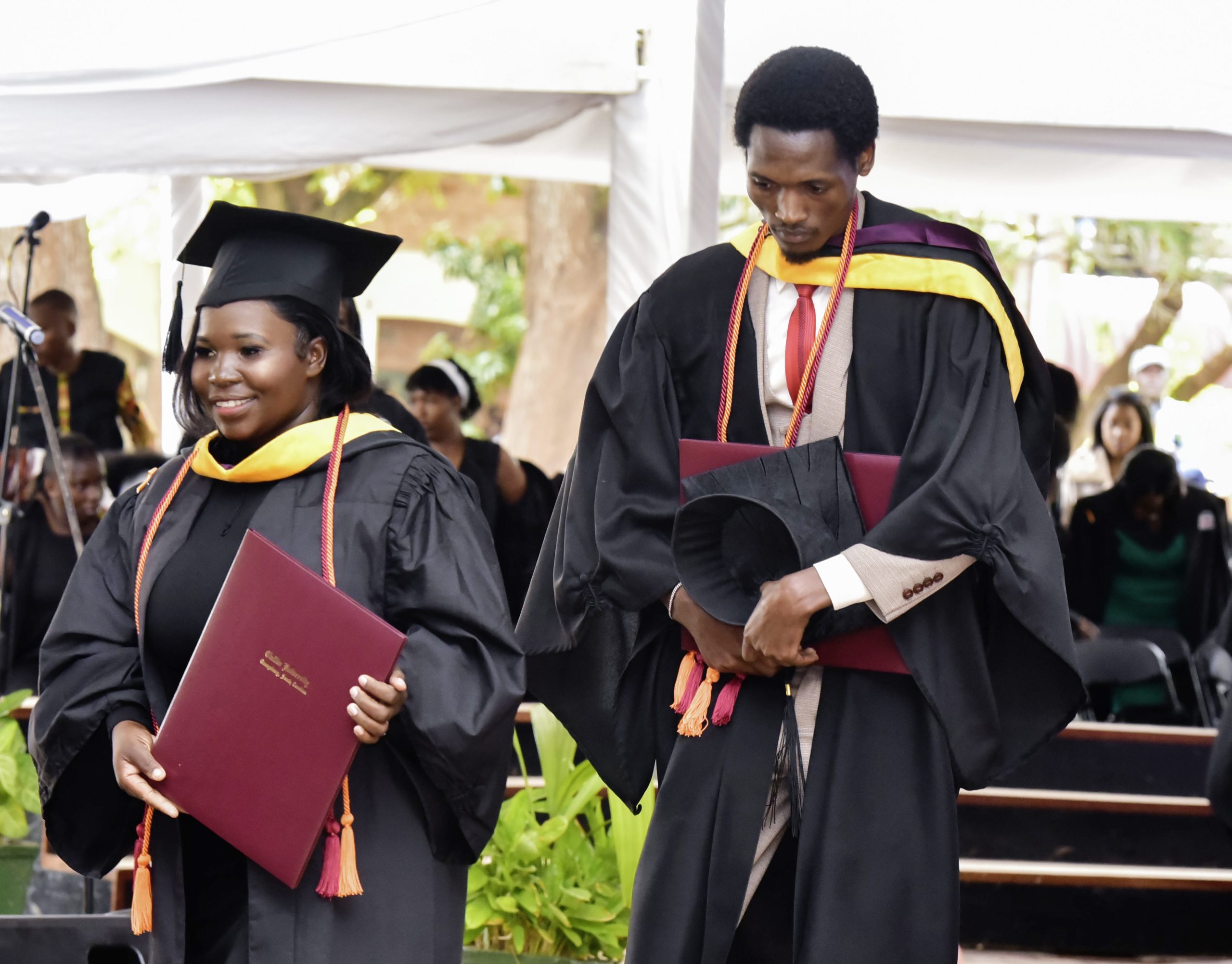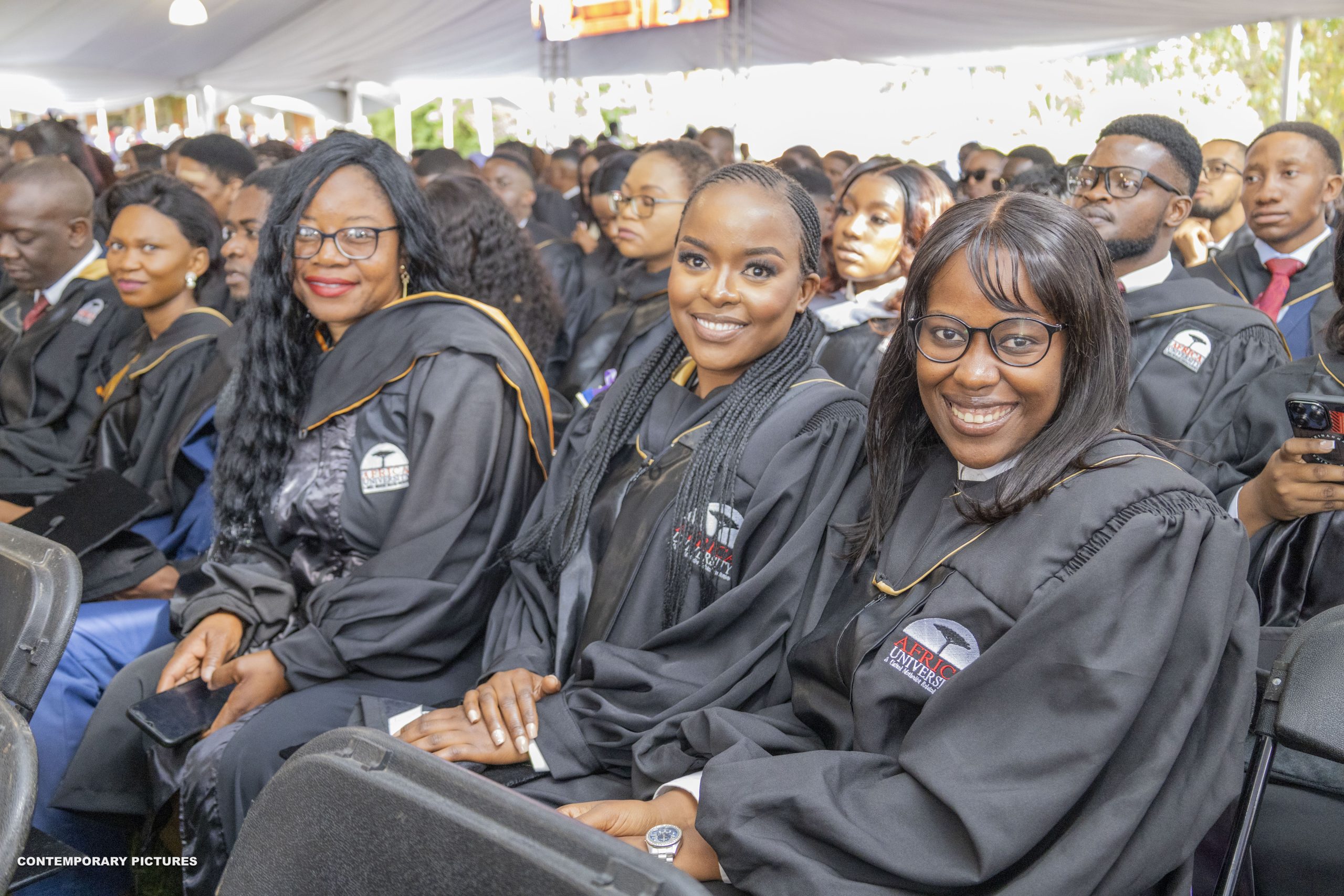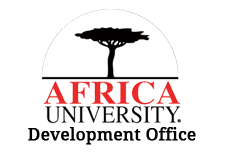
29 Jul Biotech and Climate Change at AU Tackles Climate Crisis
By Farai Shawn Matiashe
With a background in animal science, AU student Nyamongo Abiod Nyachiro has witnessed firsthand the effects of climate change worsened by livestock production, like greenhouse gas emissions, primarily methane from animal digestion and nitrous oxide from manure management. With that as motivation, Nyamongo, from Kenya, decided to step up to help solve climate change problems.

The 33-year-old earned a master’s degree in biotechnology in June through online classes at Africa University (AU) in collaboration with Claflin University in South Carolina,
“The only way that we can be able to solve climate change is by teaching more young people in Africa to solve this problem,” says Nyamongo, one of four students from Nigeria, Kenya, Mozambique and Zimbabwe who graduated with a master’s degree in climate change and biotechnology through the online program that launched in 2022.
Africa contributes less than 4% to global emissions from fossil fuels and agriculture, the impact of climate change has been felt over the years across the continent. Nyamongo says although Africa contributes less to climate change, it impacts the continent significantly because Africa is less developed.
Nyamongo hopes AU initiates this program on campus. “Having one of our own would contribute not only economically in terms of intellectual development but also make it easier for students from humble family backgrounds to study and generate home-tailored solutions to climate change,” he said.
AU has been collaborating with universities in the US and encouraging industry and multilateral partners to respond effectively to crucial capacity and training gaps facing the continent.
Reverend Peter Mageto, AU Vice Chancellor, says the institution wants to lead from the frontline.
“Our first collaboration that has strived well is the relationship between AU and the World Intellectual Property Organization (WIPO) as well as the Africa Regional Intellectual Property Organization (ARIPO) and the Government of Japan. For over 15 years, we have offered a master’s degree in Intellectual Property,” said Mageto.
“This is a serious new area where copyrights and new areas of technology are coming up that we need to protect.”
During the graduation ceremony, where 622 graduates were capped, Martha Chikowore was conferred with an Honorary Doctor of Philosophy in Intellectual Property (Honoris Causa) in recognition of her contributions to establishing and advancing intellectual property discourse, training, and research on the African continent.
Adapted from a story by Farai Matiashe, an award-winning journalist based in Mutare, Zimbabwe.


Sorry, the comment form is closed at this time.